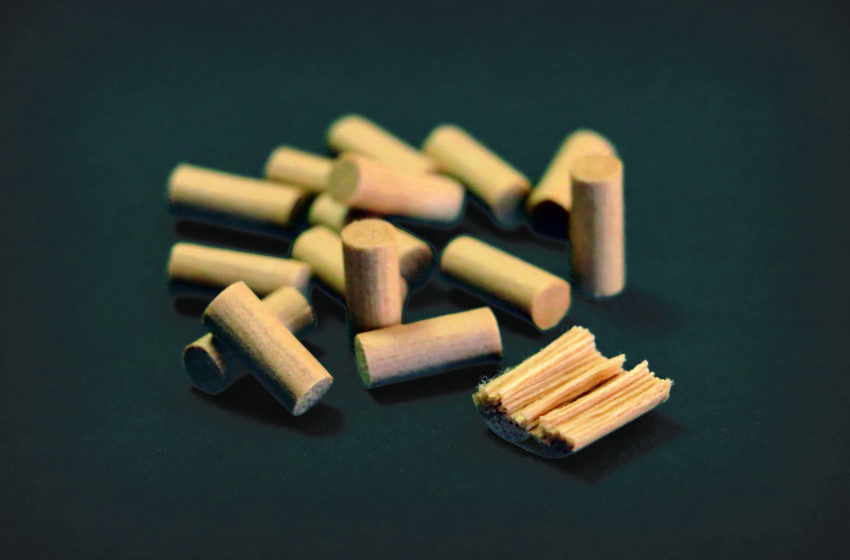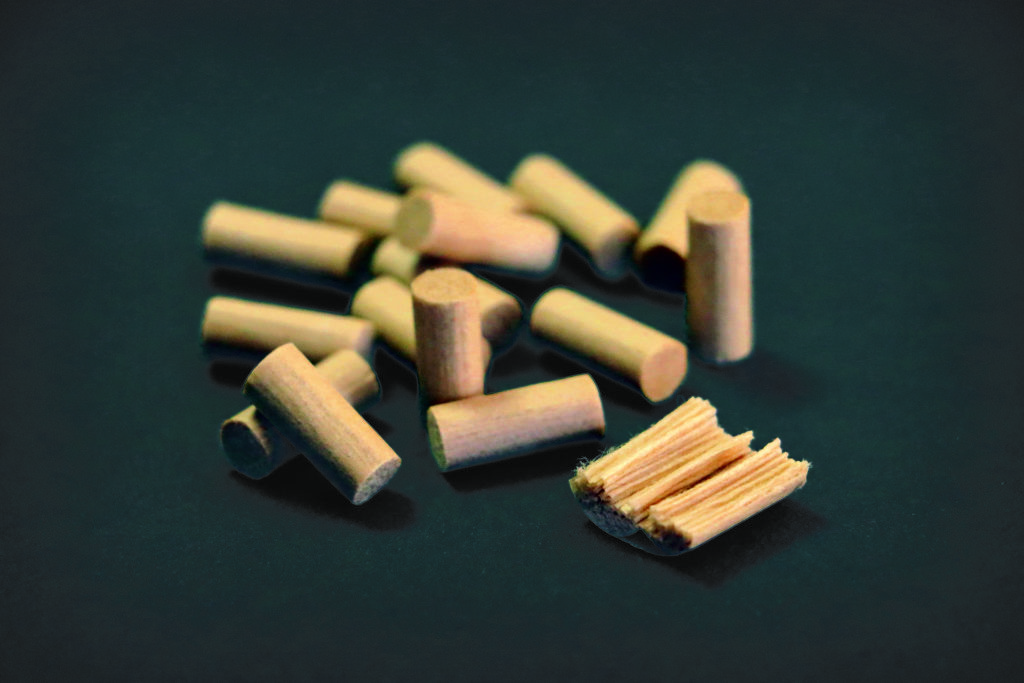Cleaning Up
- Filters Print Edition
- December 1, 2022
- 0
- 6 minutes read

Photo: SWM

SWM’s new fiber-based filter media takes the plastic out of the cigarette.
By Stefanie Rossel
In addition to the health hazard they pose to users, combustible cigarettes also threaten the environment. Cigarette butts remain the most littered item on earth. According to World Health Organization estimates, 4.5 tons of cigarette filters are discarded in our planet’s natural habitats and waterways each year. Made from cellulose acetate (CA), cigarette filters take up to 18 years to disintegrate.
However, there is hope. In the tobacco industry’s move toward less harmful nicotine-delivery systems, sustainability plays an increasingly important role. In addition, the industry got a regulatory push toward using more environmentally friendly filters when the European Union introduced its Single-Use Plastics Directive in 2021.
The directive bans selected single-use products made of plastic for which alternatives exist on the market: cotton bud sticks, cutlery, plates, straws, stirrers, sticks for balloons, as well as cups, food and beverage containers made of expanded polystyrene and all products made of oxo-degradable plastic. The extended producer responsibility legislation, scheduled to come into effect in January 2023 for tobacco filters, appears to be behind schedule.
And there is more regulation to come: In March 2022, members of the United Nations Environmental Assembly agreed to propose by 2024 a legally binding treaty to end plastic pollution that includes the marine environment. Cigarette butts are the most common plastic litter on beaches. They represent a hazard for marine life as animals can ingest the trash, exposing them to harmful chemicals. These can also make their way up through the food chain, threatening human health on a global scale.
To help tobacco customers reduce the environmental impact of their products, SWM in June launched Evolute, a range of fiber-based filtering media that can replace CA in filters. Depending on the environment, filters made from Evolute degrade in a few weeks. In October, Germany’s technical inspection association TUV granted “OK biodegradable soil” and “OK biodegradable marine” certifications to Evolute.
Full Support Package
The new filter media are part of SWM’s ongoing efforts to provide its customers with alternative sustainable solutions and support, says Alice Jaussaud, product manager for Evolute filtering media at SWM. “We are going beyond the filter media themselves, offering the full support to design a cigarette with the purpose to work with customers and offer our expertise to the tobacco industry in its transition,” she says.
The company already has a natural fiber filter solution on the market, according to Cedric Rousseau, SWM’s tobacco solutions research, innovation and development director. Several big company brands use paper filters. “Paper behaves differently than cellulose acetate, so it calls for some adjustment in terms of design of the filter and the cigarette,” says Rousseau. “This is where SWM as a supplier of various materials to the industry can provide support to its customers to properly adjust the filter media and design of ventilation, filters and characteristics of the cigarette.”
While the company’s most recent development has just been introduced, SWM is already working on the next generation of alternative solutions. “The idea is to use the filter solution as a plug-and-play solution as compared to CA media,” says Rousseau. “Our vision is to offer the industry a wide range of different plastic-free media products so they can play depending on the market, the regulations and the consumer expectations in terms of sensory profile and taste.”
The Evolute range includes industrial and scalable products with proven filtration performance, filter pressure drop stability and perfect fit to crimped filter makers, according to SWM. In addition to conventional cigarettes, they are suitable for filter tips for roll-your-own, make-your-own, cigarillos and heated-tobacco products (HTPs), says Jaussaud.
The company has an R&D group focusing specifically on HTPs. “The filter of an HTP has a different role than that of a combustible cigarette,” says Rousseau. “Some HTP filters are more for the cooling, others for the filtration of the aerosol. With the dedicated group, we have a better understanding now.”
Drawing on its expertise with papers for the tobacco industry, SWM partners not only with companies that develop filters but also with filter-making equipment manufacturers.
Sustainable Plug and Play
The often-used argument that CA is the gold standard in terms of filtration properties and smoke chemistry may soon be outdated, according to Rousseau. At its Le Mans site, SWM has set up a sensory group to evaluate consumables for HTPs and combustible cigarettes. “Biodegradability and the environmental impact are important, but taste and tar retention are obviously important as well,” says Rousseau.
“We have observed that our standard paper filter that has been on the market for some time needs to be properly used because it has an impact on tar retention. Consequently, tar retention also has an impact on taste where we must develop the right design. The next generation of filtering media we’re currently working on should have the same performance, taste and experience as well as the same physical attributes as a CA but is paper based.”
Instead of a mere substitute for CA filters, SWM aims to provide an alternative with additional features, such as sustainability, Rousseau emphasizes. He is confident that the consumer is ready for such changes. “We are moving away from wanting to have something that behaves and tastes like CA filters to something that we believe consumers will be looking for in the future. We provide a lot of value with biodegradable cigarettes,” he says.
The EU Single-Use Plastics directive has been a clear catalyst accelerating the change to plastic-free filter alternatives, notes Jaussaud. However, she sees demand beyond the EU when talking to her customers. “Similar regulations are under discussion in the U.S., Canada, Australia and other countries,” says Jaussaud.
“What started as a regulatory push now looks more and more like a consumer demand,” she explains. “Consumers don’t want to see cigarette butts on the beach anymore, and they think it would be good to have something with less pollution. They are looking for such solutions, and manufacturers are considering that beyond regulation.”


